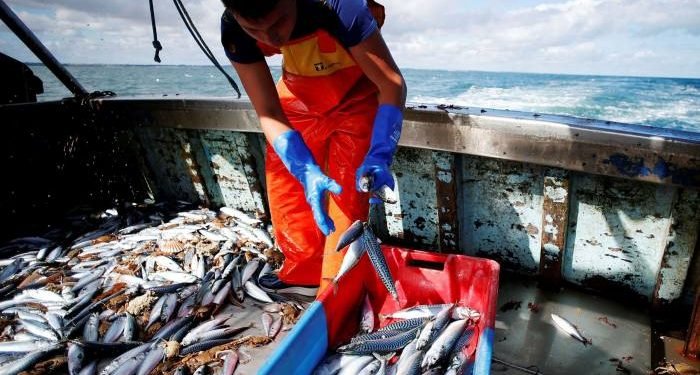Belgium, (Brussels Morning) The European Parliament’s Fisheries Committee approved unanimously today financial support for EU fisheries and the aquaculture sector in response to Russia’s invasion of Ukraine.
Fisheries and aquaculture producer organizations and operators whose economic viability is being threatened due to market and supply chain problems caused by the Russian military aggression will also be envisaged by these measures.
Some of the market distortions affecting fishermen include a rise in the price of energy, raw materials, and fish feed.
According to the text adopted by the MEPs, the European Maritime and Fisheries Fund (EMFF) will support companies whose fishing operations have been jeopardized by the war. It comprises financial compensation for additional costs, for income forgone, and for the storage of products, as well as for the temporary cessation of fishing activities where they are currently unsafe.
“The report calls for specific measures to alleviate the market disruption to the seafood supply chain caused by the Russian aggression. The EU must take urgent action to mitigate the impact of the war, and ensure the survival of companies and jobs in the fisheries and aquaculture sectors,” said MEP Nuno Melo (EPP).
Employment
In 2019, the EU fishing fleet totaled 73 983 vessels, providing direct employment to 129 540 fishers.
The aquaculture sector employs around 75 000 people, with the processing industry comprising around 3 500 companies.
“The fishery and aquaculture sectors are heavily impacted by the war in Ukraine. There are still financial resources available under the EMFF. With this proposal, we give the possibility to the Member States to reallocate them to specific measures mitigating the socio-economic impact of the crisis,” said Virginijus Sinkevičius, Commissioner for the Environment, Oceans, and Fisheries on March 25, after the Commission’s first-aid package to the sector.
However, MEPs say that EU governments would be able to use their remaining EMFF resources for the 2014-20 programming period to address the war consequences in the fisheries and aquaculture sector.
The draft negotiating position is likely to be voted during the plenary in July. Once Parliament as a whole has approved it, MEPs will be ready to start talks with EU governments on the final shape of the legislation.




